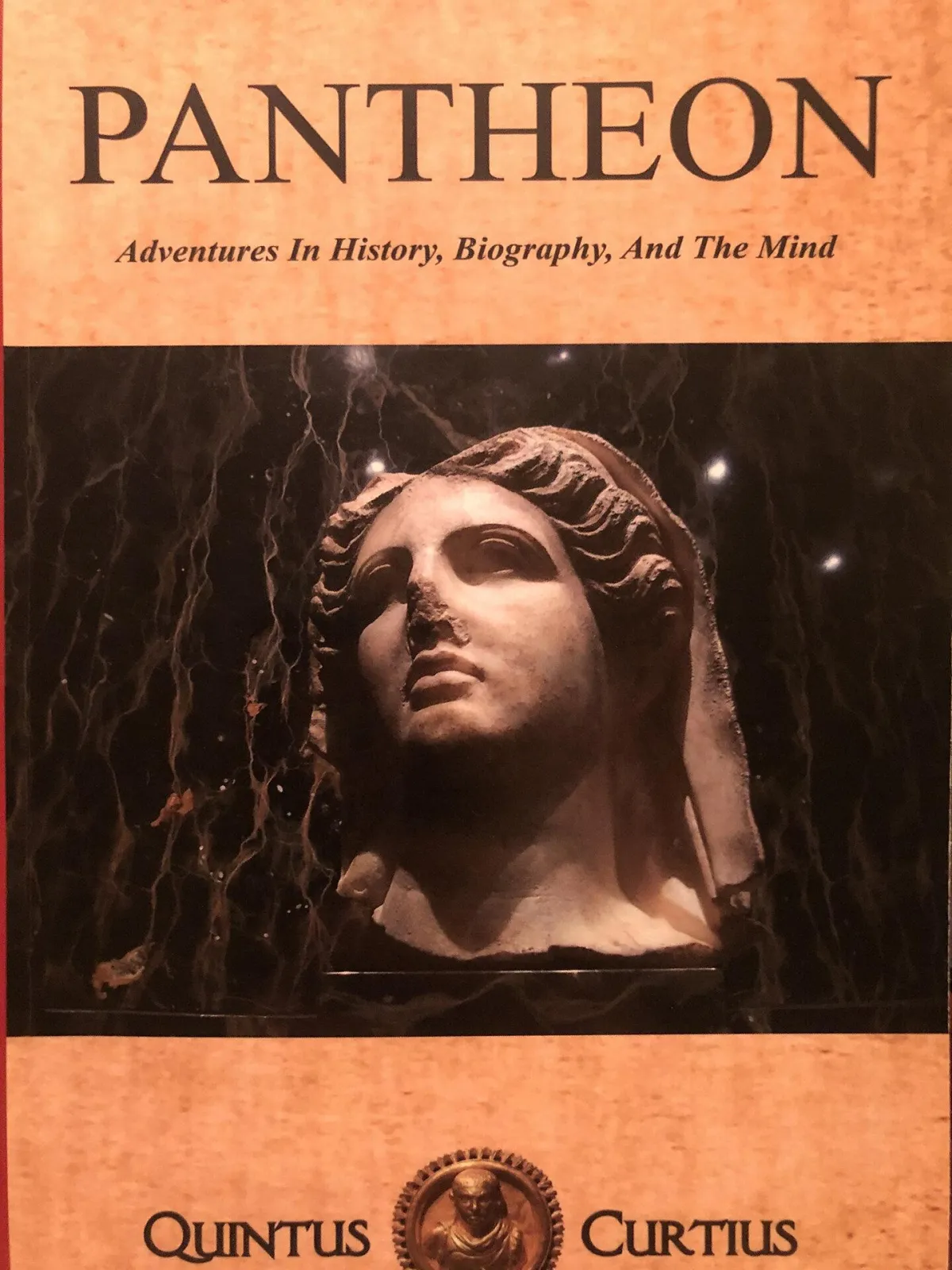
QUINTUS CURTIUS AND HOW HIS WRITING IMPACTS LEADERS
Deep Thinker. Leadership, Wisdom and Strength. Words that jump to the forefront of my mind as I contemplate the impact and learnings from this fine author. This is an author (pen name: Quintus Curtius) who offers knowledge and insight to provide the reader with an opportunity for internal growth. I am summarizing three books written or translated by this author. All three of these books can have an impact on your life. They are worth your time. Each one allows you a peek inside human nature which includes different periods in history utilizing a variety of influencers and leaders of the past. The

wisdom is immense. Wisdom available for learning in the hope good decisions can be put into action and insightful gains to avoid the mistakes and missteps others made earlier. You don’t have to read them all in one sitting. Each book contains short stories, essays and interesting views on historical individuals of the past in which we can admire their character and be inspired by their impressive accomplishments. What a gift!
Well written narratives providing the opportunity to also learn from the errors and consequences revealed throughout the pages of history, one self-contained chapter at a time. Perhaps a short reading before bed to introduce additional wisdom. A nighttime cogitation to assist all of us to be better leaders who will consider the gifts and skills of our teams while matching them with the overall needs of the organization.
There are three books. Take your pick. All provide a depth of insight to enlighten.
You don’t have to be a Classicist to benefit from a book regarding history and the personalities who played a major part in it.
Pantheon
Lives of the Great Commanders
Thirty Seven
Pantheon (1 of 3 reviews)
What I like about Quintus Curtis is his ability to make you think. He provides a narrative utilizing people of the past, their challenges and many accomplishments. This allows us as leaders to marinate in the successes, gain wisdom from the losses and even more importantly, pass on the learnings and positive action without having to live personally through all the experiences. Our teams will benefit.
As leaders, we continue to encounter adversity and conflict. It is a product of the position and a major expectation of why we are in our roles. Leadership always has its own level of conflict to accomplish anything. We must accept the uncertainty, friction and the moral problems of conflict as translated within our own industry. Conflict can never be eliminated. We must accept its inevitability and pursue the game plan. Our job, to have a strategy and handle the difficulties with grace, compassion, strength and wisdom.
The majority of us, as leaders, believe we have the answers. We know how to handle the challenges and mishaps; nevertheless, it runs much deeper. The imminent difficulties provide an opportunity to demonstrate our internal and company values both in our decision making and how we treat those around us. We can prove it is not just words or signs in our lobby. A great benefit of reading the Pantheon by Curtius is he provides the internal stimulus for us to review our character. His narrative allows us to explore our ability to maintain the vision and moral depth to live according to values we have accepted and embraced. Do we have the “personal mastery” of the decisions in how we live our life? Not a question asked as often today, but do we have the courage and honor to proceed for what is right, no matter the consequences? A good question for any leader to explore, within.
Furthermore, if we are willing to explore internally, the truth of Curtius’s statement: “We can only hope that the awareness of our ignorance will serve as a constant stimulus in our quest for wisdom” holds true and can be a great motivator.
Ignorance can be a great designator but is not the sole motivation for increased wisdom and mental awareness. Curtius explores and mentions many of the great names of the past: Pascal, Descartes, Nietzsche and other individuals. Many suffered extreme physical or even mental challenges; nevertheless, we are eloquently reminded that despite their limitations, each was a great thinker who offered much in the way of looking at the world. Their differing perspectives and drive resulted in life-altering achievements. It is a reminder of all we can accomplish as thought leaders no matter our respective industries. Any physical or mental limitations which (or who) may have caused discomfort or held us back in the past becomes immaterial.
Curtius also shares for us within these compact chapters thoughts and verbal illustrations of spending our time and energy, not on the inconsequential and trivial routine problems of everyday existence, but instead to focus our strength, time and energy on “how to deal with the inevitable hardships of life.” We will all experience misfortune and it is “how we deal with such things that will contribute to the preservation of our moral purpose…”
Furthermore, we are reminded it cannot be done alone. It is necessary for us to seek out others of principled character in our life for “support and sustenance, with frequent travels abroad for a refreshing change of perspective.” In elegant prose, we are reminded that a person who maintains their moral purpose no matter their location, situation or the role they are serving, are strengthened through the struggle and experience.
Curtius also reminds us that when in positions of leadership or prominence, you will naturally be attacked by those wishing to cause you harm. Jealousy and envy by others are the natural by-products of our enlarged responsibility and greater titles. Accept it. Don’t waste your time and energy continually responding. He shares ancient wisdom still applicable to today just keep following your “own moral purpose.” In fact, another chapter shows us how a theme is consistently repeated throughout history where individuals of action and ability “invariably arouse envy among those who prefer to lurk in obscurity behind the comfortable partitions of stifling bureaucracies…so it has always been.” Mr. Curtius reminds us that sometimes the only necessary award is the great deed itself.
We even receive an example of the type of individual who relentlessly and physically tests themselves outside their comfort zones. A nice reminder of the individuality in people’s wish to achieve and the differences in their desires for fulfillment and accomplishment. Real eye-opening (again) about what is possible and how we as individuals often are challenging ourselves to discover the depth of who we are.
As mentioned, there are a variety of topics covered throughout Pantheon. Another section which will be quite illuminating for many is about the blessings of physical gifts, including beauty, and how it reminds us that any physical gift can become a curse as it can limit growth and “enfeeble the will, leaving a person ill-equipped to withstand the inevitable shocks of life.“
This truly is a book of exploration, inspiration and internal the growth possibilities of the mind. Curtius indulges us in the history, biography and of the mind across both time and geography.
Note: I am not affiliated with the author in any way.
Tagged: Quintus Curtius, Pantheon, leadership
Mindset, Skillset, Peopleset Leadership

